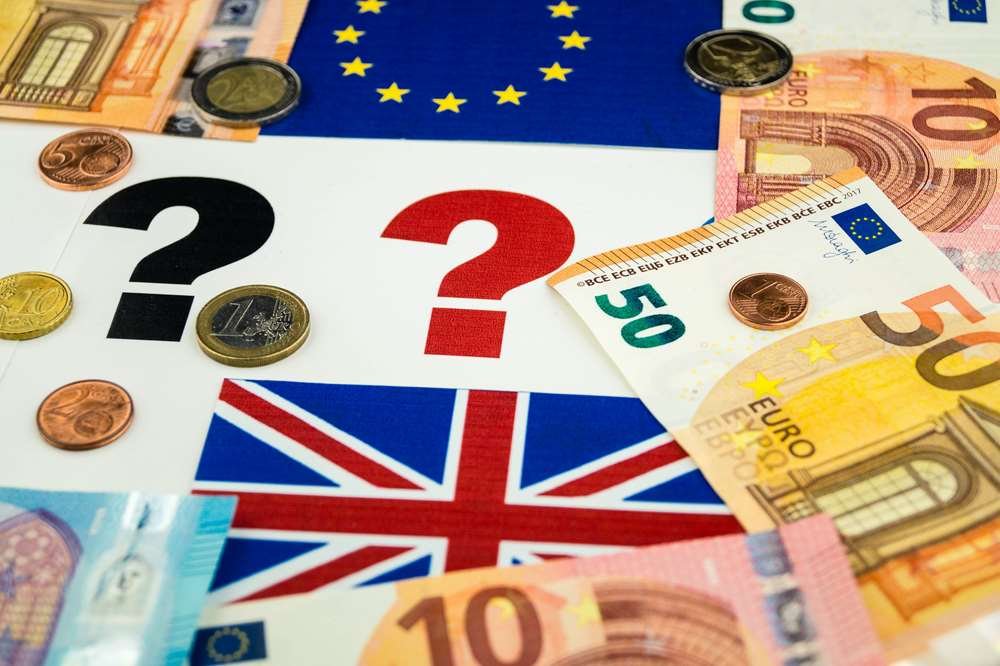Investing amid the coronavirus and Brexit – what to look out for
Published by Gbaf News
Posted on February 28, 2020
5 min readLast updated: January 21, 2026

Published by Gbaf News
Posted on February 28, 2020
5 min readLast updated: January 21, 2026

Coronavirus and Brexit – the key events investors cannot afford to overlook in 2020
By Giles Coghlan, Chief Currency Analyst, HYCM
There are many challenges when it comes to effectively managing an investment portfolio. An understanding of the financial markets is a must, as is the need to understand when and how to restructure investments and undertake new trades. However, there is another side to investing that can be commonly overlooked – that is, an understanding of trending global, social and political events.
When it comes to understanding the global financial markets, the first thing one commonly realises is just how sensitive asset prices are. Nothing is ever really certain. Rather, the price growth of any asset is determined by a series of peaks and troughs that fall on an upward trajectory.
Importantly, major events are likely to affect your financial portfolio in some shape or form. That’s why there is a need to understand both what is happening in the world, and how these global events are likely to impact the price of different assets. Rapid changes in the markets caused by political and social events creates both potential risk and return.
2020 has already proven to be an eventful year. In early January, for example, the heightened tensions between the US and Iran caused gold rose to its highest price in 7 years at $1,600 USD per ounce. If regional instability grows, we could see a similar price spike.
Based on what we have seen transpire over the last month, I have listed below three social, political and economic trends investors need to have on their radar.
No market is immune from coronavirus

Giles Coghlan
One might think that coronavirus will only have a visible impact on markets that are dealing with a mass outbreak of the disease. It has already been predicted that China will adjust its 2020 GDP growth forecast, which currently stands at 6.1%, with some suggesting there could be as much as a 1% drop. As the second largest economy in the world, this would have significant implications for the performance of other markets as well.
However, it is not just China who is feeling the effects. Indirectly, US and European-based companies who rely on China as part of their supply chain model are beginning to be affected. Take tech giant Apple – the company warned its supply would be temporarily constrained due to the fact that its suppliers in China have reduced their level of output. This resulted in a massive investor sell-off of shares being held in financial and technology companies.
At this point in time, it is difficult to understand directly how coronavirus is impacting the global economy. Some commentators are optimistic there will be limited economic spillover outside of China, and are confident central banks have the tools needed to address any sudden market volatility. Others are concerned coronavirus will remain a serious issue for months to come. Either way, investors and traders need to keep a keen eye on unfolding events surrounding the coronavirus.
Brexit is not resolved yet
2019 was a frustrating period for those hoping for the UK Government to make progress on Brexit. The inability of politicians to strike a compromise on this complicated issue resulted in political and economic uncertainty. However, things changed following Boris Johnson’s victory in the 2019 general election. In the aftermath of the election, the FTSE100 increased in value by £33 billion. Investors were clearly reassured that a majority-led Johnson government would offer the certainty required to safely invest in UK-based assets.
Importantly, since then it seems that the so-called Boris bounce has continued. Investors remain optimistic and hopeful, though we shouldn’t overlook the fact that we are still a long way from Brexit being resolved. Can the UK Government effectively deliver Brexit by the end of the year? And how will negotiations affect investor confidence? Just like the ongoing US-China trade war, this is a developing trend with the potential for significant fallouts and gains.
As is the nature with the financial markets, social, political and economic events of any sort offer both risks and potential gains for investors and traders who understand how the market reacts to a specific set of circumstances. It’s all about developing one’s knowledge, research and understanding by staying on top of the latest trends, two of which will need to be the coronavirus and Brexit.
High Risk Investment Warning: CFDs are complex instruments and come with a high risk of losing money rapidly due to leverage. 67% of retail investor accounts lose money when trading CFDs with this provider. You should consider whether you understand how CFDs work and whether you can afford to take the high risk of losing your money. For more information please refer to HYCM’s Risk Disclosure.
Giles Coghlan is Chief Currency Analyst at HYCM – an online provider of forex and Contracts for Difference (CFDs) trading services for both retail and institutional traders. HYCM is regulated by the internationally recognized financial regulator FCA. HYCM is backed by the Henyep Capital Markets Group established in 1977 with investments in property, financial services, charity, and education. The Group via its relevant subsidiaries have representations in Hong Kong, United Kingdom, Dubai, and Cyprus.
Explore more articles in the Investing category











